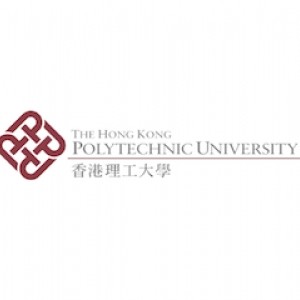Photos of university / #hongkongpolyu
The Bachelor of Arts (Honours) in Design Strategies at The Hong Kong Polytechnic University offers a comprehensive and innovative curriculum that prepares students to become forward-thinking design professionals capable of addressing complex societal challenges. This programme emphasizes the strategic application of design thinking, research methodologies, and creative problem-solving skills across diverse industries and contexts. Students will engage in a multidisciplinary learning environment that encourages exploration of the relationship between design, culture, technology, and business, fostering an understanding of how design can effect meaningful social change and drive innovation.
Throughout the course, students will develop a solid foundation in design principles, research methods, and strategic planning, complemented by practical projects and real-world case studies. The programme places a strong emphasis on user-centered design, sustainability, and ethical considerations, ensuring graduates are well-equipped to create solutions that are both functional and socially responsible. In addition, students will have opportunities to collaborate with industry partners, participate in internships, and showcase their work through exhibitions and competitions, gaining valuable insights into the professional design landscape.
The curriculum is structured to promote critical thinking, creativity, and strategic insight, encouraging students to approach design problems with an analytical mindset and innovative spirit. The programme also integrates emerging digital technologies and tools to prepare students for the evolving demands of the design industry. By the time of graduation, students will have built a robust portfolio demonstrating their ability to develop strategic design solutions that are user-focused, sustainable, and impactful.
The honours level of the programme ensures a rigorous academic experience, enabling students to conduct independent research and develop original ideas within the field of design strategies. Graduates will be well-positioned to pursue careers in design consultancy, advertising, branding, social innovation, user experience, and other sectors where strategic thinking and design expertise are essential. This programme ultimately aims to empower future leaders in the design industry who can contribute creatively and strategically to societal development and innovation.
The Bachelor of Arts (Hons) in Design Strategies at The Hong Kong Polytechnic University offers a comprehensive and innovative curriculum that prepares students to become future leaders in the field of design. The programme emphasizes a strategic approach to design, integrating creative thinking with business acumen and social responsibility. Throughout their studies, students engage in a variety of projects that span multiple disciplines, including graphic design, product design, urban design, and digital media, enabling them to develop versatile skills applicable to diverse industries.
The curriculum is structured to foster critical thinking, problem-solving, and effective communication, equipping graduates with the ability to analyze complex issues and develop innovative solutions. Students explore design principles, user experience, and sustainable practices, ensuring they are well-versed in current industry standards and trends. The programme encourages a collaborative learning environment, where students work on real-world projects in partnership with industry stakeholders, public organizations, and community groups, cultivating professional networks and practical experience.
In addition to technical skills, the programme emphasizes the importance of cultural awareness and ethical considerations in design, preparing students to address social challenges through thoughtful and responsible design strategies. Courses are delivered through a combination of lectures, workshops, studio sessions, and internships, providing a balanced blend of theory and practice. The faculty comprises experienced professionals and researchers who bring industry insights into the classroom and mentor students throughout their academic journey.
Graduates of the Design Strategies programme are equipped to pursue careers in various sectors such as branding, advertising, urban planning, digital content creation, and social innovation. They are also prepared to continue their education through postgraduate studies or to undertake entrepreneurial initiatives in the creative industries. With a focus on innovation, sustainability, and social impact, the programme aims to develop well-rounded design strategists capable of making meaningful contributions to society and the global creative economy.
Program requirements for the Bachelor of Design (Honours) in Design Strategies at The Hong Kong Polytechnic University typically encompass a combination of academic prerequisites, portfolio submission, and language proficiency standards. Applicants are generally expected to hold a relevant Hong Kong Diploma of Secondary Education (HKDSE) or an equivalent qualification recognized by the University. For those with qualifications obtained outside Hong Kong, additional assessments or certifications may be necessary to demonstrate suitability for the programme.
A strong foundation in visual communication, creative thinking, and problem-solving skills is essential. Prospective students might be required to submit a comprehensive portfolio demonstrating their previous work in design, ideation processes, and conceptual development. The portfolio should effectively showcase their creativity, technical skills, and ability to think critically about design challenges.
English language proficiency is a vital requirement, with accepted tests including IELTS, TOEFL, or equivalent, depending on the applicant’s educational background. For example, an IELTS score of at least 6.0 with no band less than 5.5, or an equivalent TOEFL score, is typically expected. The university also emphasizes the importance of personal statement and interview processes to assess applicants’ motivation, interest in design strategies, and aptitude for the discipline.
International students must fulfill visa requirements and may need to undergo additional assessments to confirm their English language capabilities. Additionally, applicants with prior tertiary education in related fields are encouraged to highlight relevant coursework and professional experiences that demonstrate their preparedness for advanced study in design strategies.
The program emphasizes interdisciplinary collaboration, innovation, and critical thinking, and applicants are encouraged to demonstrate these qualities through their applications. While specific prerequisites can vary, a portfolio review and an interview are central components in the admission process, enabling the faculty to evaluate applicants’ creative potential and suitability for the programme.
In summary, the program requirements include academic prerequisites aligned with Hong Kong and international standards, portfolio submission showcasing relevant design experience, proof of English language proficiency, and performance in interviews and statement assessments. These elements combined aim to select candidates capable of contributing meaningfully to the evolving field of design strategies and to succeed in a rigorous academic environment.
The Hong Kong Polytechnic University offers various financial support options for students pursuing a degree in Design Strategies. Tuition fees for full-time undergraduate programmes in this field are typically around HKD 42,100 per year for local students and approximately HKD 122,000 per year for international students. To assist students in managing these costs, the university provides a range of scholarships, grants, and financial aid schemes. Scholarships are often awarded based on academic merit, performance in entrance examinations, or other criteria such as leadership and community involvement. Notable examples include the PolyU Undergraduate Scholarships and the Hong Kong Government’s Student Finance Office assistance programs, which help cover tuition and living expenses.
In addition to merit-based scholarships, the university offers need-based financial aid, including bursaries and students' loans that can significantly reduce the financial burden. For international students, the university encourages applications for external funding sources, such as government-sponsored scholarships or ASEAN scholarships, which may be available depending on the student's country of origin. The university also provides work-study opportunities, allowing students to gain practical experience while earning part of their living expenses.
Students are advised to explore the various financial support options early in their studies and consult with the university’s Student Financial Services Office for personalized assistance. The university’s commitment to accessible education aims to ensure that qualified students can pursue their degree in Design Strategies without undue financial hardship. Moreover, alumni and industry partnerships occasionally offer internship programs that come with stipends, further supporting students’ financial needs during their studies. Overall, the financing studies at The Hong Kong Polytechnic University are designed to make higher education in Design Strategies attainable and sustainable for both local and international students through a comprehensive range of financial aid programs.
The Bachelor of Arts (Honours) in Design Strategies at The Hong Kong Polytechnic University is a contemporary programme that focuses on developing innovative solutions through strategic design thinking. This programme emphasizes a multidisciplinary approach, integrating elements from design, business, and social sciences to equip students with the skills necessary to address complex real-world problems creatively and strategically. Students are encouraged to analyze current industry trends, explore sustainable design practices, and engage in hands-on projects that foster critical thinking and problem-solving abilities. The curriculum covers a wide range of topics including user experience design, branding, marketing strategies, innovation management, and digital development, ensuring graduates are versatile and adaptable in various professional contexts. The programme also offers opportunities for international exposure through exchange programmes and collaborations with industry partners, providing students with valuable global perspectives. Throughout their studies, students develop a portfolio that showcases their ability to craft compelling and strategic design solutions, preparing them for careers in fields such as branding consultancy, innovation management, service design, and design leadership. The faculty comprises experienced professionals and academics dedicated to fostering a creative and entrepreneurial mindset. Facilities include cutting-edge design labs, digital studios, and collaborative workspaces that facilitate experiential learning. Graduates of the programme are well-equipped to contribute to the evolving landscape of strategic design, helping organizations innovate and stay competitive in a fast-changing world, making it a highly relevant and forward-thinking degree within the arts and design sectors.





